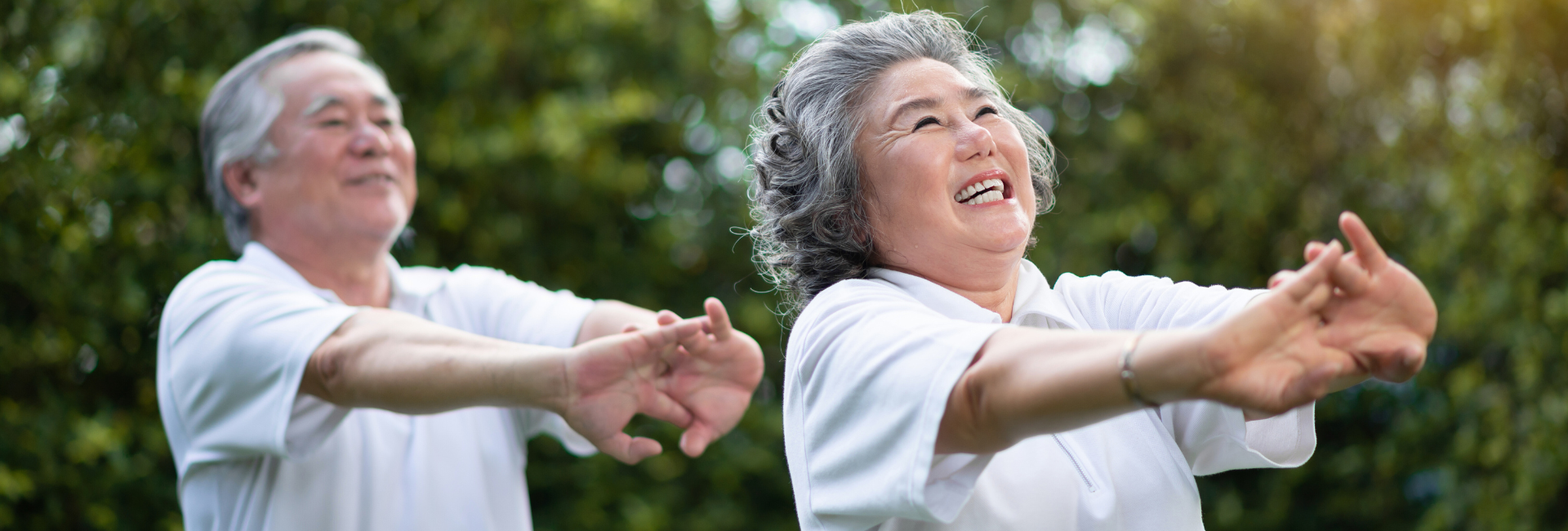
Exercising with Diabetes
Regular exercise is a key part of healthy living. The benefits of exercise include:
- Increased energy levels
- Improved mood and reduced stress
- Maintenance of a healthy body weight
- Lowered blood pressure and reduced risk of heart disease
For people living with diabetes, exercise has the added benefit of reducing blood sugar levels. This allows you to control your blood sugar levels with fewer medications.
Before starting a new fitness programme
| Talk with your healthcare team before embarking on your exercise plan if: |
- You have Type 1 diabetes.
- You are starting exercise after a long period of inactivity.
- You are planning to engage in more vigorous exercise than usual.
- You have diabetes-related complications such as eye, kidney, or nerve disease, foot ulcers, or heart disease.
- You are participating in high-risk activities like diving, rock climbing, or mountain climbing.
- You are participating in endurance exercises like long-distance cycling or marathons.
- You are not able to feel or have reduced symptoms of hypoglycaemia.
|
Exercise and low blood sugar (hypoglycaemia)
Exercising may increase the risk of low blood sugar (hypoglycaemia). The risk of low blood sugar due to exercise depends on the type of diabetes treatment you are on and/or the type and duration of exercise.
If you are on insulin treatment, or taking diabetes tablets that can cause hypoglycaemia (e.g. glipizide, gliclazide, glibenclamide, glimepiride or repaglinide), you may need to take additional precautions to avoid low blood sugar attacks (hypoglycaemia) associated with exercise.
Consult your healthcare team to learn about these precautions. They can teach you how to monitor your blood sugar levels, adjust your medications, and manage your carbohydrate intake to prevent hypoglycaemia due to exercise.
In addition, it is advisable to postpone your exercise if you have low blood sugar (hypoglycaemia).
Resources to get you started
Here are some resources and types of exercise to get your started on your fitness journey:
Also, find out how you can join an Active Health programme or search for a programme to support your HealthierSG health plan by location and age group.
Back to 'Managing Diabetes' >


















